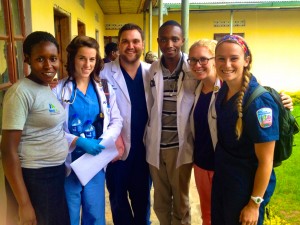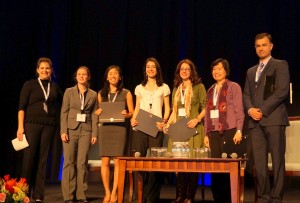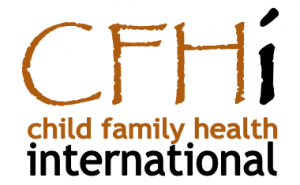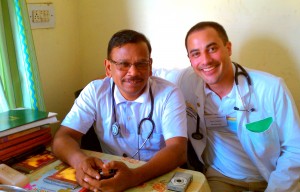What follows is a Guest Blog by Jessica Evert, MD, CFHI Medical Director, who is attending the CUGH Annual Meeting in Seattle. Previous entries with Jessica are here and here
The opening plenary of CUGH’s Second Annual Meeting (Consortium of Universities in Global Health) was marked by discussion of the great successes and challenges in global health. A live feed from TEDxChange, a non-profit dedicated to the exploring ideas and giving space to innovative thinkers, opened the morning with inspirational data presented by Hans Rosling and commentary by Melinda Gates. The conclusion by Rosling was that there is no “developing” and “developed” world; he cited the fact that countries with some of the best indicators of child survival and birthrate are still considered “developing.” He also gave a very positive report on the progress toward MDGs, specifically reduction of poverty. He emphasized that we cannot consider Africa to be homogeneous, whereas, places such as the Congo have been stagnant on indicators such as child mortality, countries like Kenya have made great strides. Interestingly, Rosling overlaid a graph of the progress by Sweden over the last 200 years, which demonstrated their slow progress in the area of child mortality (400/1000 in 1800) in the first 100 of those years. This was powerful to give a long-term view of the progress that has only been started in the context of the last 10 years of the MDG campaign.
Melinda Gates utilized the model of Coca-Cola in their ability to penetrate far-reaching communities in the world (over 1.5 billion cokes are consumed a day) and promote their product in a positive light (a current marketing slogan being “Open Happiness”). One of the components of this success is the appreciation of and capitalization on local entrepreneurs. I liken this to the importance of local health professionals in global health goals and programs. Gates pointed out that our health improvement or preservation messages are often in a negative light- ‘avoid disease,’ ‘combat germs,’ ‘control infection.’ Rather, she purports, that if we utilize positive messages that draw on popular culture methods (hip hop, fashion, celebrations) it will be more effective. She encourages us to “look at what people want” and market health interventions to those aspirations.
Subsequently a panel of speakers made comments about global health and the role of universities. A common theme is the role of “collaboration” and “developing relationships.” 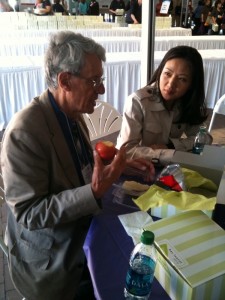 They universally endorsed the importance of international experiences for trainees. During the Q & A session I brought to the attention of the audience and panel that US medical schools, almost universally, do not require global health education for medical students. In addition, global health is not a topic on the medical school boards. In my opinion, a catalyst for the adoption of global health topics as part of the required medical school curriculum in the US is the inclusion of global health topics in the medical school board exams. We can draw on the experience of preventive medicine/public health, which were recent categorical additions to the medical school boards. This proposition begs a question, which is not an easy one, and was put to me by King Holmes after the session, “what do we add?” Yes, global health is a broad field, and yes, narrowing that down to curriculum that is digestible by US medical schools is a challenge. However, there are multiple organizations and individuals who are grappling with these questions- including the Global Health Education Consortium (GHEC). To let the broad scope of ‘global health’ be our barrier or excuse for not integrating it into US medical school education is to succumb to the most basic cop-out that deters many from working toward the most basic, yet overwhelming, challenges to health at home and abroad- including equity, access, compliance, and the like.
They universally endorsed the importance of international experiences for trainees. During the Q & A session I brought to the attention of the audience and panel that US medical schools, almost universally, do not require global health education for medical students. In addition, global health is not a topic on the medical school boards. In my opinion, a catalyst for the adoption of global health topics as part of the required medical school curriculum in the US is the inclusion of global health topics in the medical school board exams. We can draw on the experience of preventive medicine/public health, which were recent categorical additions to the medical school boards. This proposition begs a question, which is not an easy one, and was put to me by King Holmes after the session, “what do we add?” Yes, global health is a broad field, and yes, narrowing that down to curriculum that is digestible by US medical schools is a challenge. However, there are multiple organizations and individuals who are grappling with these questions- including the Global Health Education Consortium (GHEC). To let the broad scope of ‘global health’ be our barrier or excuse for not integrating it into US medical school education is to succumb to the most basic cop-out that deters many from working toward the most basic, yet overwhelming, challenges to health at home and abroad- including equity, access, compliance, and the like.
I encourage the global health education community, and the larger global health university movement, which is embodied by CUGH, to look in their own backyards, medical/nursing/allied health schools and wider university programs to embrace global health curriculum in a real way. In many US medical schools, students are begging for global health education, exposure, and experiences. To adopt required global health topics into the medical school curriculums is a basic step which these universities have control over. A manageable curriculum could include: basic lessons on the global burden of disease (including infectious disease, mental health, maternal/child mortality, and chronic disease), overview of global health initiatives (such as MDGs, PEPFAR, Global Fund), and discussions of inequities (as evidenced by the 10/90 gap, health disparities). The next question is who teaches these issues- at many of the larger, well-funded universities, experts may be internal and easily accessible. However, there is a challenge at many, even large, medical schools, who lack faculty with expertise in global health. This is where the role of non-profits and global health educational organizations is essential. Schools can utilize resources such as the global health education modules created by Global Health Education Consortium which bring experts to the classroom through PowerPoint presentations with evaluation. Also, many communities have non-profits or church-based organizations who are active globally. Engaging in global health activities does not necessarily correlate with the ability to teach basic global health education, however, we must start somewhere.Unlike cardiology, endocrinology, and other themes taught in medical school, global health is not a cookie-cutter experience or topic. However, if CUGH and organizations, such as the AAMC, require US medical schools to teach basic global health lessons to all medical students, and elevate the importance of these topics, medical schools will be given a tangible requirement that they can respond to with curriculum and faculty development.
Finally, I was struck by the university leaders’ agreement that ‘relationship building’ and ‘collaboration’ are necessary for any global health endeavor to be successful. Our medical schools have great challenges in building these relationships because of unreliable funding streams, focus on outcomes and accomplishments (often at the expense of an appreciation of process and community involvement), and staff/faculty turnover. There is also an inflexibility that is prominent in medical schools and institutions where state department advisories can lead to the complete withdrawal from a country, leaving partners to consider us ‘fair weather friends,’ and there is a tendency for wanting partnerships to fit into a programmatic mold. I hope the university community will see the benefit of partnerships with non-profit organizations, such as CFHI, who have the flexibility, continuity of staff/mission, and reliable funding streams to help facilitate international experiences for trainees in a fashion that is ethically, fiscally, and culturally sound.
CUGH is making their debut in many ways over the coming couple of days. I hope that their ability to leverage universities in the US will lead to increased global health exposure of our health science trainees, so that we are truly training the globally minded professionals that the future requires. In addition, I hope that momentum at the university level recognizes the role of non-governmental (and often not primarily academic) organizations who are setting standards in community engagement and training future health care providers in a way that elevates international communities as the ‘experts’ of their own environment that they are.
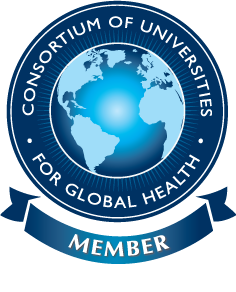
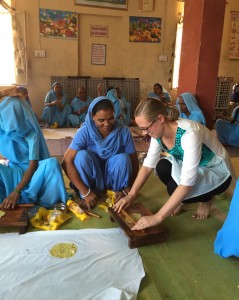 from the fields of public health, medicine, and more have all defined this term in different ways. That is why when the Consortium of Universities for Global health convened in 2008, one of the items that members called for was to define the field of global health and standardize required curricula and competencies for the emerging discipline.
from the fields of public health, medicine, and more have all defined this term in different ways. That is why when the Consortium of Universities for Global health convened in 2008, one of the items that members called for was to define the field of global health and standardize required curricula and competencies for the emerging discipline.